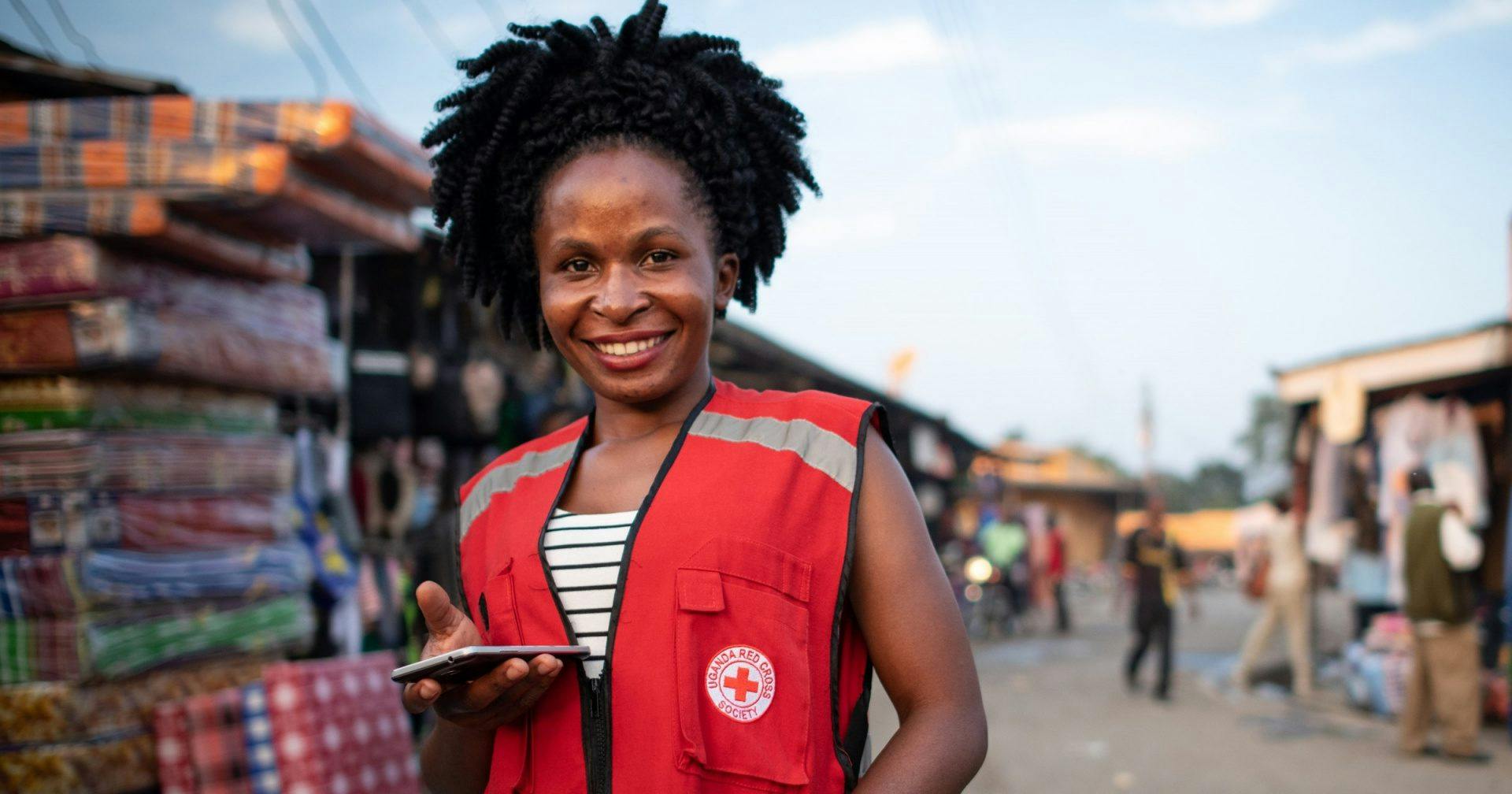Data for creating lasting health change in Africa | Amref
August 2023
We have all seen the tremendous value of data analytics on the success of commercial organizations. Now, how about humanitarian and societal challenges? As one of the founders of the Analytics for a Better World Institute, ORTEC believes that analytics can also contribute to solving major challenges facing humanity - from hunger to deforestation and the extinction of flora and fauna, among others. For this edition from our ‘Jointly for Social Impact’ series, we sat down with Amref Health Africa, a leading health organization in Africa, to hear from them how data contributes to their mission to create lasting health change in Africa.
___
Jointly for Social Impact
This article is part of the ‘Jointly for social impact’ series. Every article highlights another impact story based on collaborations and partnerships with Analytics for a Better World - an institute co-founded by ORTEC.
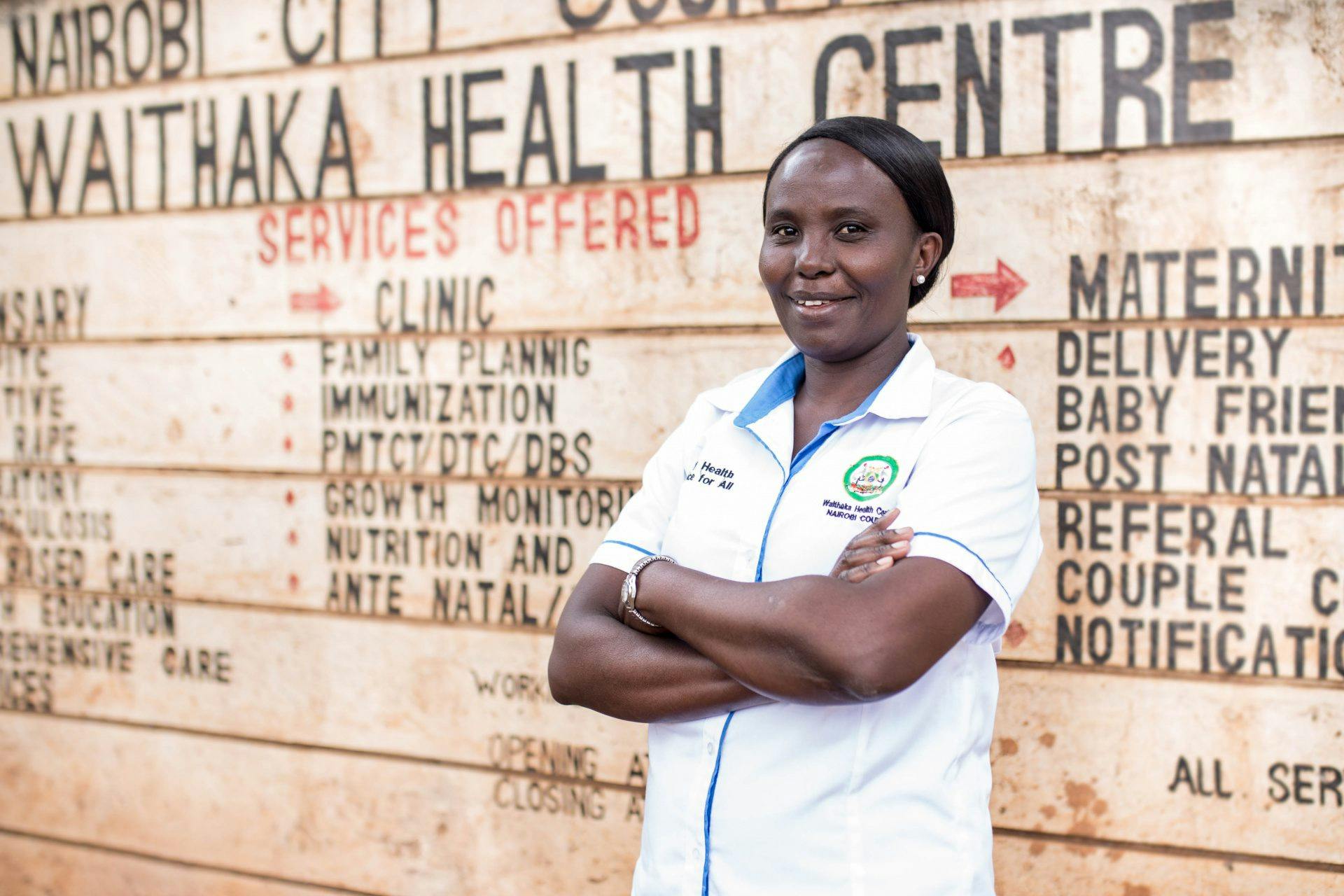
About Amref
Amref Health Africa is Africa's leading health non-governmental organization (NGO), founded in 1957. They sustainably strengthen health systems and improve access to life-saving care by partnering with communities. ORTEC collaborates with Amref since 2019 through their Dutch office ‘Amref Flying Doctors’.
Empowered by data
Only 48% or 615 million people in Africa receive the healthcare services they need.* Meanwhile, Amref Health Africa aims to create lasting health change in Africa. Data is an essential enabler for them. By applying data analytics technology, they can increase their impact on the people in need today and influence the policies of tomorrow. More specifically, it enables Amref to:
- Support programmatic decision making and run a more efficient operation to reach more people in need, in a shorter timeframe, and support them better;
- Increase transparency and measurability of their efforts and impact, which builds trust and deepens the partnerships with their donors;
- Build thought leadership and support influencing African health policy decision making
Overall, the data-driven approach empowers Amref to effectively tackle critical health challenges and improve healthcare outcomes for the African communities they serve.
*Source: Elsevier Foundation
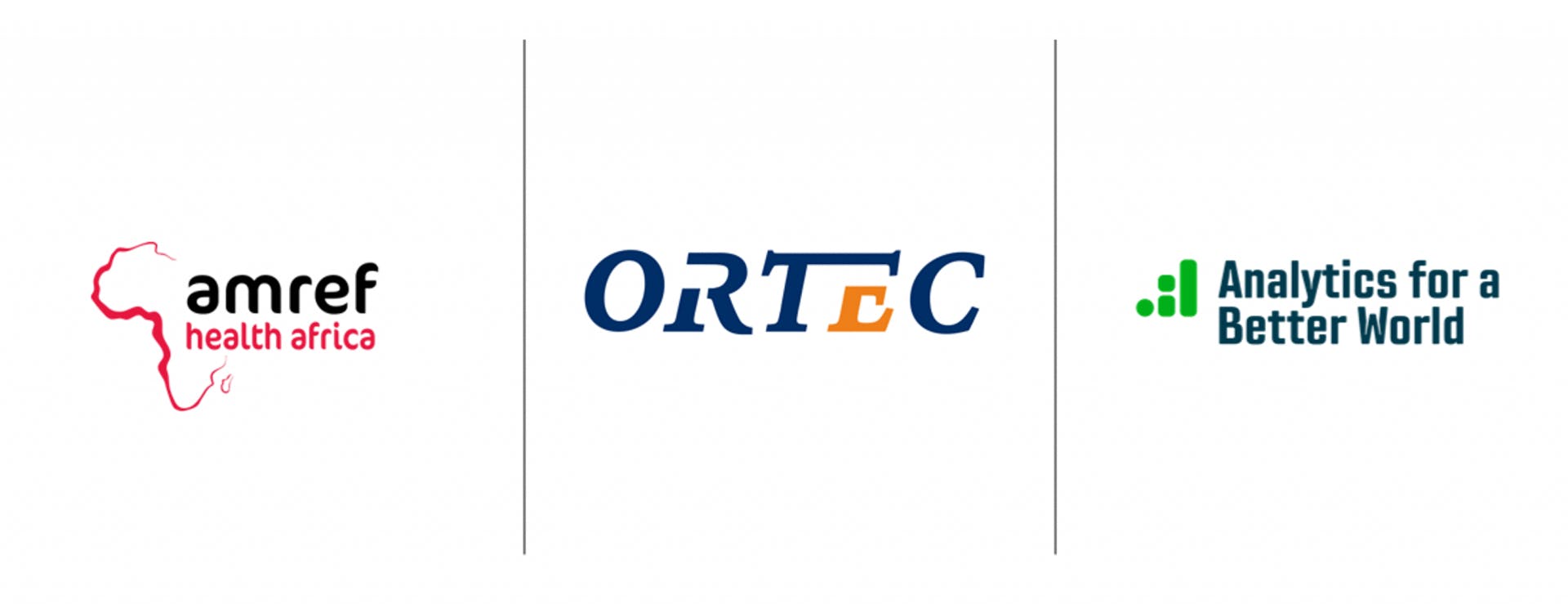
Better interventions thanks to the dashboard
📊 From complex data to an easily digestible format
Amref provides lots of health services to various populations in Africa. By having more data about these populations, Amref can perform greater tailored and targeted programs and interventions. But how to streamline all the complex data, so it can be understood in a simple way? Amref was facing a challenge in visualizing it. The collaborative effort of ORTEC and Analytics for A Better World resulted in an easily digestible format: The Community Health Analytics Dashboard. This dashboard streamlines data visualization and facilitates data-driven decision-making. The dashboard delivers significant impact by improving data accessibility, identifying key insights, and enabling targeted interventions.
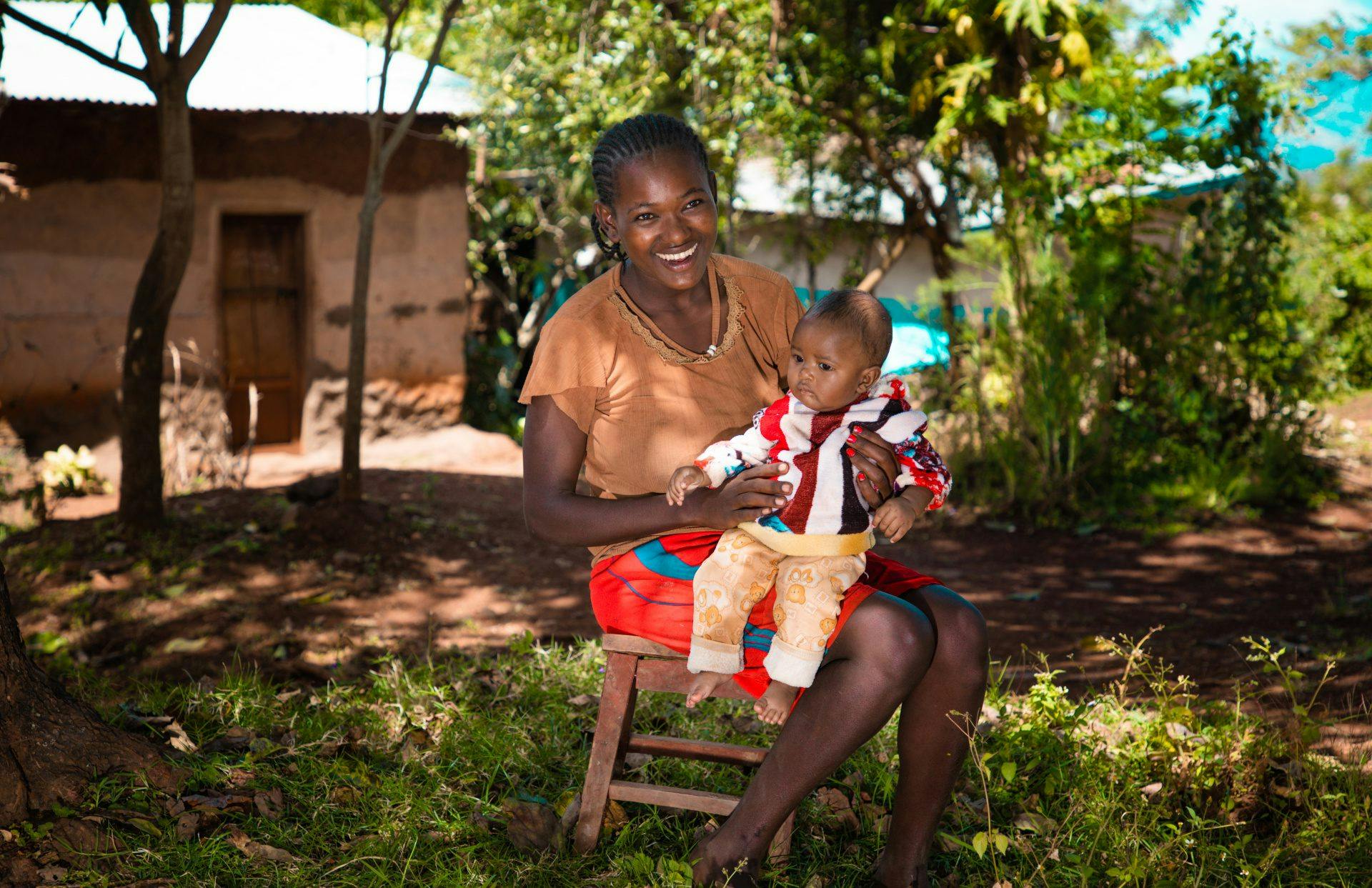
🎯 The impact of the dashboard
The dashboard provides valuable insights for data-driven interventions in six Kenyan counties: Meru, Makueni, Migori, Kakamega, Taita Taveta, and Kilifi counties. It firstly incorporates data from household surveys, including socioeconomic background, healthcare access, health financing, reproductive and maternal health, poverty levels, water; sanitation and hygiene (WASH), and other anonymized data. It then plays a crucial role in identifying areas with for instance healthcare access issues, vaccination gaps, and the need for additional infrastructure. By having these areas mapped-out, Amref can create tailored interventions to support the people living there. Conducting another survey at a later period provides data for comparative analysis to determine level of impact from the interventions, as well as information on additional supported needed for the regions.
Summed up, the dashboard enables an impact assessment, impact measurement, monitoring, and evaluation. Additionally, the availability of real-time data is an important benefit of the dashboard. This empowers Amref to share impact stories with stakeholders and the public, demonstrating the effectiveness of their programs and attracting more sustainable funding sources and partnerships.
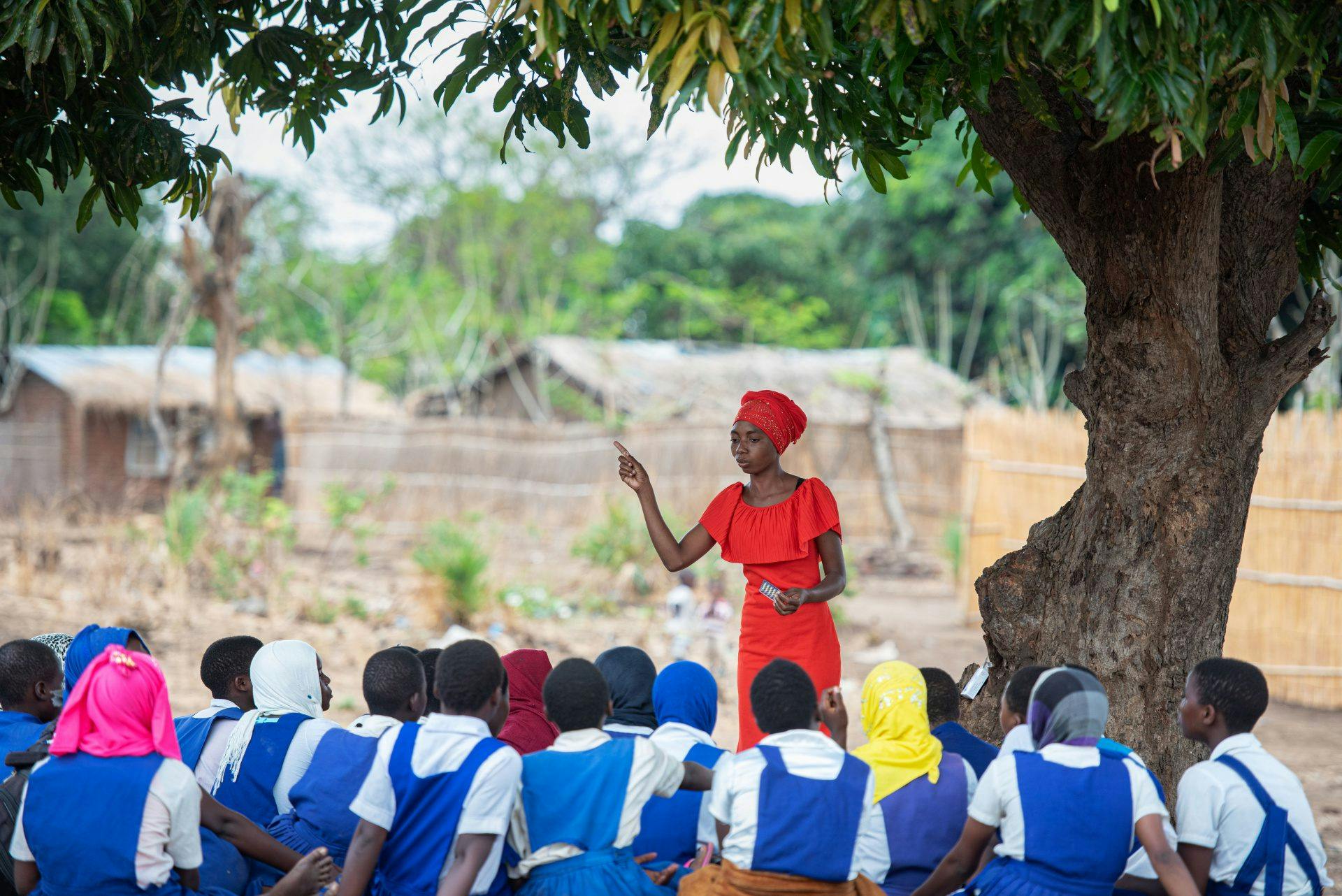
➡️ Handing over to Amref
After the development of the dashboard, the work was handed over to Amref. This handover ensures independency, enabling them to make future changes and updates without external assistance. The transfer of knowledge and ongoing support from ORTEC and Analytics for A Better World enables Amref to maintain and further enhance the dashboard's functionality and benefits gained from it. All for the ultimate goal: effectively tackle critical health challenges and improve healthcare outcomes for the communities they serve.

Joanna Arulraj Director Monitoring, Evaluation & Learning at Amref Health Africa
""Data and evidence-based decision making will help increase Amref’s sustainability and credibility amongst relevant stakeholders such as ministries, health workers, and donors. In turn, this strengthens our positioning as a thought leader within the Africa’s public health space.""
Amref’s journey to data maturity
With data being such an essential enabler to Amref Health Africa, they are interested in becoming more data driven, also called more “data mature”. To find out how data mature Amref already was and to discover their desired state of maturity, ORTEC, Analytics for a Better World, and Amref jointly conducted an assessment whose results are mapped into the Analytics Maturity Model: a visual representation on their current score of data maturity against different domains, and their ideal ‘to-be’ state.
On various domains, we assessed Amref’s data maturity: from level 1 (basic data skills) up to level 5 (analytics innovator). An organization’s ideal ‘to-be’ state doesn’t always need to be the highest data maturity level (level 5). In fact, we found that for Amref, the perfect data maturity fit would be level 4 ultimately, with level 2-3 as mid-term goal to reach in one year.
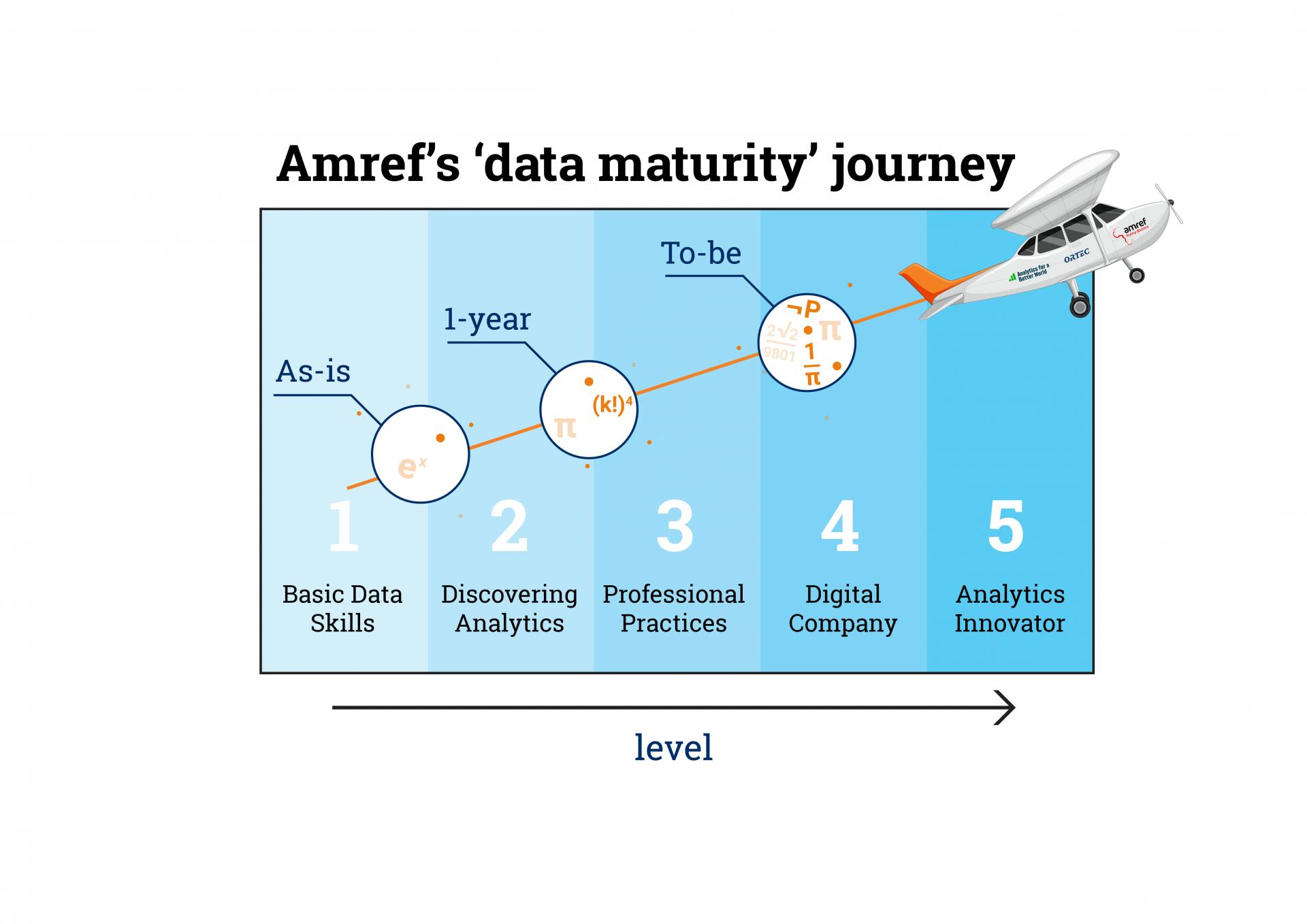
Which steps to take to become more data driven?
How to grow in data maturity levels is shown to Amref in a tailor-made roadmap. Thanks to this roadmap, Amref has a clear plan to grow from their ‘as-is’ (currently between level 1-2) to their ‘to-be’ state (ultimately at the beginning of level 4, with a mid-term goal set between level 2-3), as it provides suggestions and recommendations on what steps to take.

